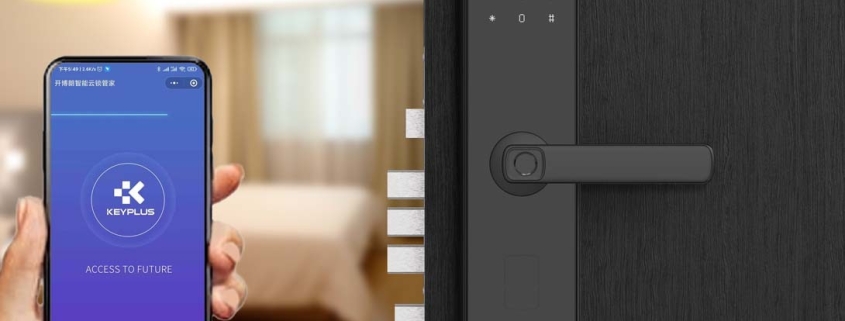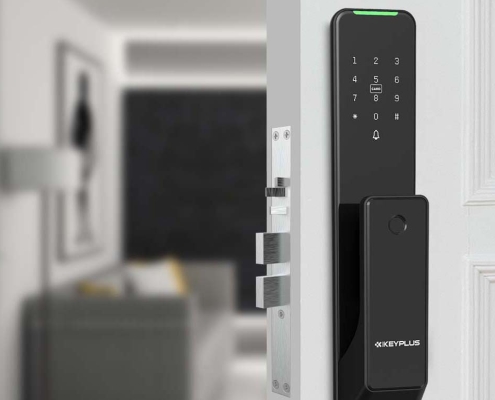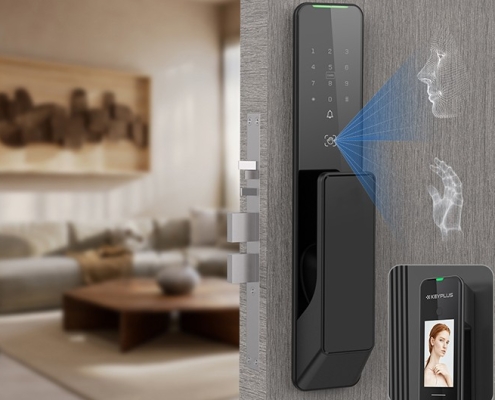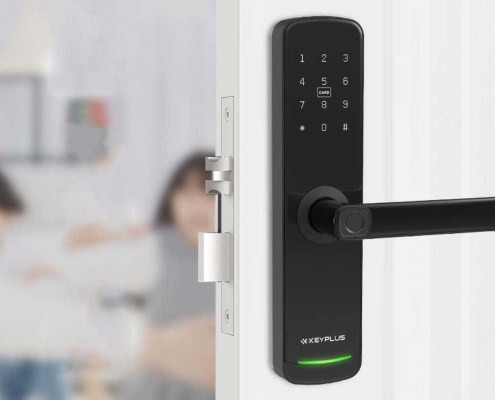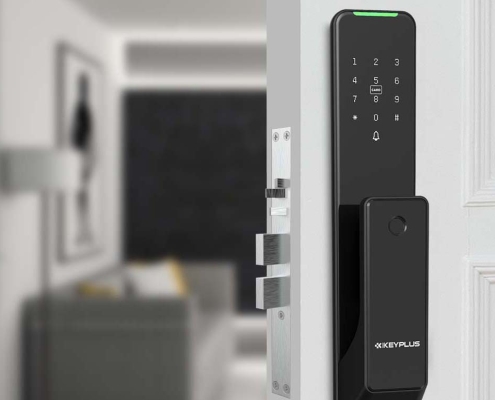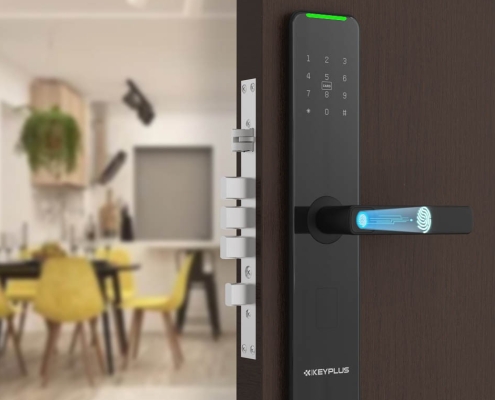Which Lock is Best for Your Main Door?
Your front door is your home’s first line of defense—so choosing the right lock is crucial. With so many options available (deadbolts, smart locks, keyless entry systems), how do you pick the best lock for your main door?
This guide breaks down:
✔ The most secure lock types for front doors
✔ Smart vs. traditional lock pros and cons
✔ Top-rated locks for American homes
✔ How to balance security, convenience, and budget
By the end, you’ll know exactly which lock will keep your family safe while fitting your lifestyle.
1. What Makes a Front Door Lock Secure?
Before choosing a lock, understand these key security features:
A. Lock Grading Matters
The ANSI (American National Standards Institute) rates locks in three grades:
-
Grade 1 (Best) – Commercial-grade, hardest to pick or break.
-
Grade 2 (Good) – Residential heavy-duty (most smart locks fall here).
-
Grade 3 (Basic) – Light-duty, not recommended for front doors.
Always choose Grade 1 or 2 for your main door.
B. Pick-Resistant Technology
Look for:
-
Anti-drill plates – Prevents drill attacks.
-
Anti-bump pins – Stops lock bumping (a common break-in method).
-
Hardened steel bolts – Resists kicking or prying.
C. Smart Locks vs. Traditional Deadbolts
| Feature | Traditional Deadbolt | Smart Lock |
|---|---|---|
| Security | Very secure (if Grade 1) | Secure + remote monitoring |
| Convenience | Requires keys | Keyless entry, remote access |
| Installation | Simple | May need Wi-Fi/hub setup |
| Price | 50−150 | 150−400+ |
Best choice? Many experts recommend a smart lock + a Grade 1 deadbolt for maximum security.
2. Best Types of Locks for Main Doors
A. Single-Cylinder Deadbolt (Most Common)
-
How it works: Key outside, thumb turn inside.
-
Best for: Most homes (if paired with a strike plate for reinforcement).
B. Double-Cylinder Deadbolt (Extra Secure)
-
How it works: Needs a key both inside and outside (no thumb turn).
-
Best for: Doors with glass panels (prevents reach-through break-ins).
-
Safety note: Can be a fire hazard—keep keys nearby.
C. Smart Locks (Keyless + Remote Access)
-
Best for: Tech-savvy families, Airbnb hosts, or those who hate keys.
D. Keypad Locks (No Keys, No Smart Features)
-
Best for: Renters or those who want keyless entry without Wi-Fi.
E. Mortise Locks (High-End Security)
-
How it works: Heavy-duty lock built into the door (common in Europe).
-
Best for: Luxury homes or custom doors.
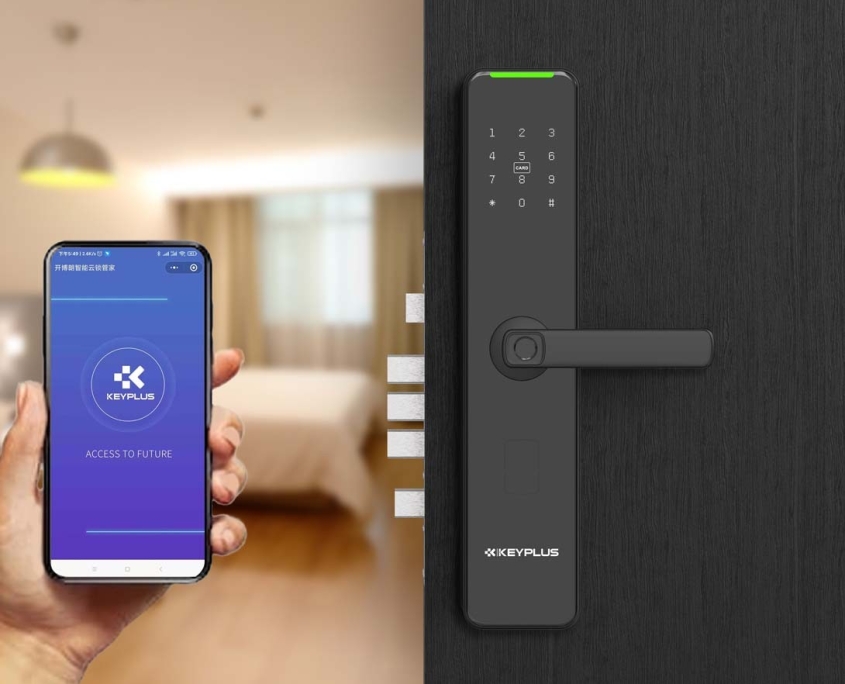
3. How to Choose the Best Lock for YOUR Home
Ask yourself:
1. What’s Your Biggest Priority?
-
Maximum security? → Grade 1 deadbolt + reinforced strike plate.
-
Keyless convenience? → Smart lock.
-
Budget-friendly? → Kwikset 914 keypad lock.
2. Do You Have a Glass Door or Nearby Windows?
-
If yes, avoid single-cylinder deadbolts (thieves can break glass and turn the thumb latch).
-
Instead, choose a double-cylinder deadbolt or smart lock with auto-lock.
3. Do You Need Remote Access?
-
Yes? → Get a Wi-Fi smart lock.
-
No? → A keypad or traditional deadbolt is fine.
4. What’s Your Climate?
-
Extreme cold? → Avoid cheap smart locks (batteries drain faster).
-
Humid areas? → Choose stainless steel or coated locks to prevent rust.
4. Installation Tips for Maximum Security
Even the best lock won’t help if your door is weak. Follow these steps:
Reinforce the strike plate (use 3-inch screws into the door frame).
Upgrade to a solid-core or metal door (hollow doors are easy to kick in).
Add a door barricade for extra protection.
Final Verdict: What’s the BEST Lock for Your Front Door?
-
For most Americans: deadbolt + Smart Lock (best combo of security + convenience).
-
For renters: keypad lock (no permanent changes).
-
For ultra-security: mortise lock + smart doorbell camera.
Remember: No lock is 100% burglar-proof—but a Grade 1 deadbolt or high-end smart lock dramatically reduces break-in risks.
Need Help Choosing? Ask Below!

